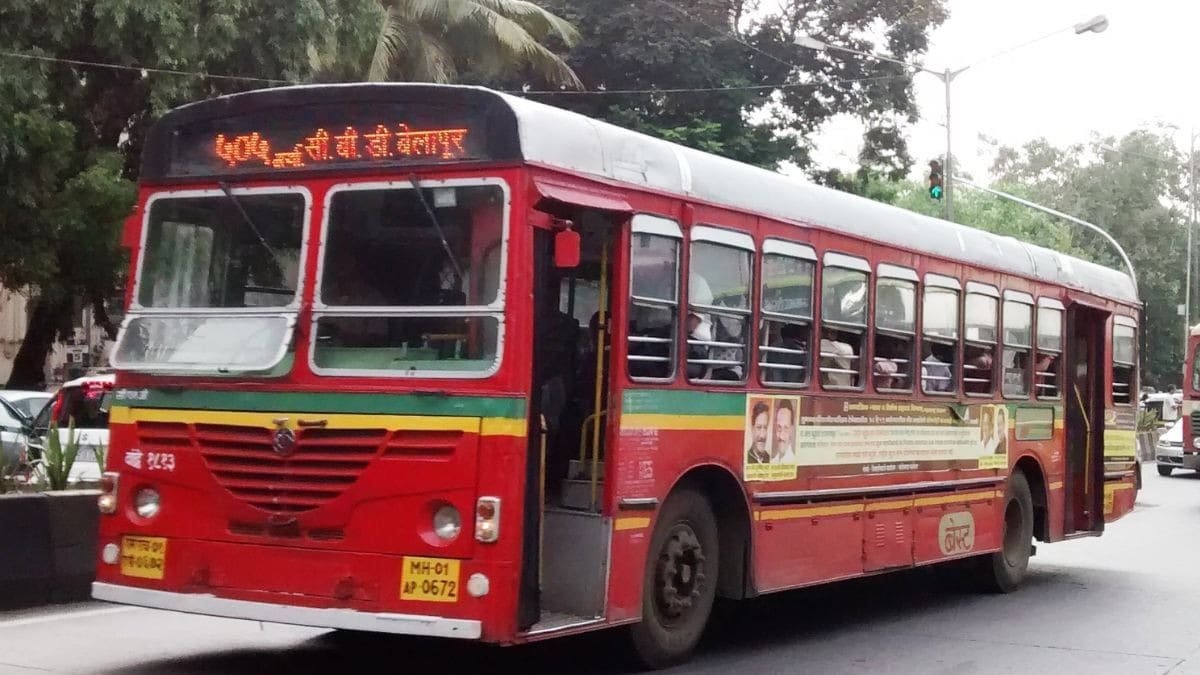Report by Kamgar Ekta Committee (KEC) correspondent

The privatisation of BEST bus services began a few years ago, disregarding the opposition of the BEST workers and lakhs of Mumbai residents. As a result, as of 1 June 2025, BEST owns just 437 buses, which make up only 17% of its total operational fleet of 2,594 buses. The remaining 2,157 buses—accounting for 83%—are operated through agreements with private contractors. These private contractors own and operate the buses, providing both the vehicles and drivers, while BEST handles the routes, schedules, and ticketing. The contractors are paid by BEST for the service they provide.
The BEST undertaking had around 4700 buses in its fleet in 2007. The overall operation was so efficient that more than 96% of the fleet used to be on the road every day, due to which BEST used to be acknowledged as a world class public transport system and experts from the world over used to come to study its efficient working. Available figures indicate that in 2009 around 44 lakh working people of Mumbai used the BEST buses daily for commuting.
The first casualty of privatisation was closure of more than 150 bus routes, which were considered to be not profitable for the private contractors. The frequencies of buses on the remaining routes have been reduced. As a result, people have to wait much longer for their buses. Lakhs of working people who cannot afford other modes of transport are forced to spend additional one to two hours every day just because waiting times have gone up. Private contractors of BEST have also started using smaller buses, as a result of which buses are over-crowded. As a result, the number of people who daily use BEST bus service has dropped to around 30 lakhs, from more than 44 lakhs in 2009.
Private contractors do not maintain buses properly due to which instances of buses breaking down mid-way, and instances of buses catching fire, have increased. Accidents have increased.
Drivers are employed on temporary contracts. They are refused minimum wages, their Provident Fund contribution is not deposited in time, their salaries are delayed and they are forced to work for 10-12 hours every day. That is why from time to time they are forced to go on strike.
Permanent employees and retired employees of BEST are also facing numerous problems including delayed salaries and delayed pension. More than 1500 crores of dues of permanent employees are yet to be settled by BEST.
The BEST undertaking is part of Bombay Municipal Corporation (BMC) since 1947. BMC, which is the richest corporation in the country, does not provide adequate funds to BEST for running a proper efficient public transport service. During the 2020-21 to 2024-25 period, BEST asked for Rs. 16,505 crore but received only Rs. 6,986 crore. The Government of Maharashtra is thus forcing BEST to cut back on services and increase the bus fares.
Privatisation of bus transport is being carried out under the deceptive name of Public-Private-Partnership (PPP). Life experience of the people all over the country regarding all kinds of public services shows that the real aim of PPP is to accumulate profits in private hands while dumping losses on the heads of the public!
Due to reduction in the financial support by BMC to BEST, in the second week of May 2025, the BEST undertaking suddenly imposed a massive hike in bus ticket rates, ranging from 40% to 100%. This was a cruel blow to more than 30 lakh working people who use the BEST bus service daily, to commute to their work places, and whose children use the service for going to schools and colleges. There was a wave of resentment amongst the working people against this fare hike. Unable to shoulder the additional financial burden, more than 5 lakh working people stopped using the BEST bus service. All of this pressure on the BEST management to reconsider the decision of the massive fare hike.
Since the launch of the program of globalisation, through liberalisation and privatisation in 1991-92, every service to the people, be it electricity, water supply, health care, education or passenger transport, is treated as a burden on the government treasury. Various Central and State governments are competing with each other in reducing government expenditure on public services and in directly or indirectly privatising them. That is what has happened with BEST public transport.
Efficient and affordable public transport is a fundamental right that belongs to all members of society. It is among the basic duties of the state to ensure its provision. It is not a privilege or a favour which can be given at one time and taken away at another time.
Privatisation of public transport in any form is completely against the interests of the working people, who are its users. It is also against the interests of the workers employed in providing the service.
A forum of working people of Mumbai, under the banner of Aamchi Mumbai Aamchi BEST (Our Mumbai, our BEST), is demanding an immediate halt to the privatisation of bus transport. So are Kamgar Ekta Committee and many other organisations and unions of the working class.
The struggle against the privatisation of BEST transport services is part of the struggle against the privatisation of any essential service, be it rail or bus transport, education, health or water supply.
